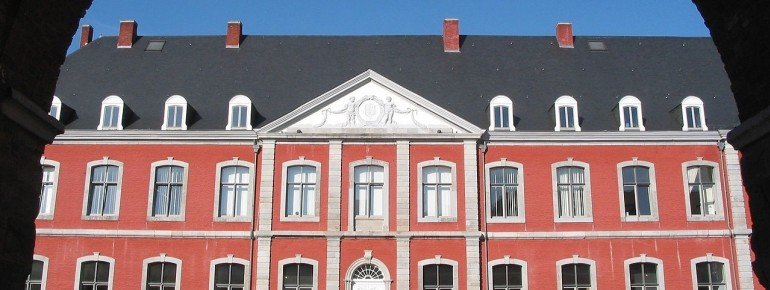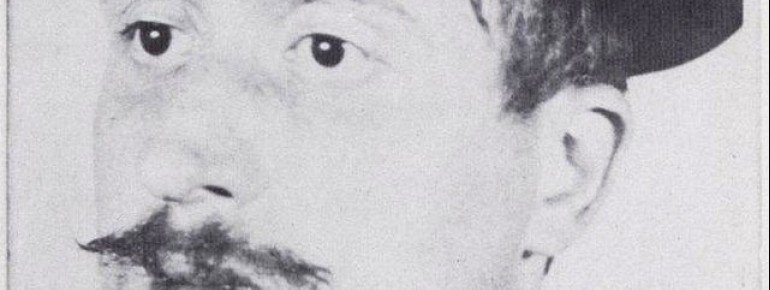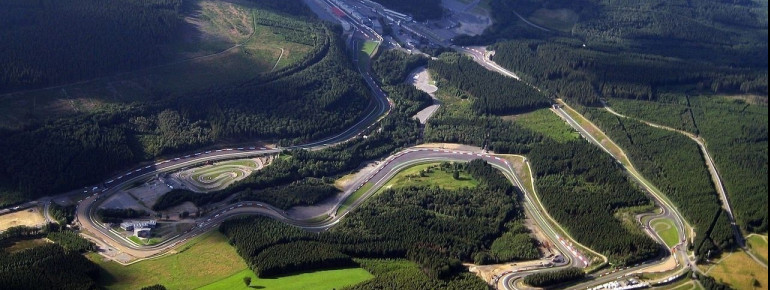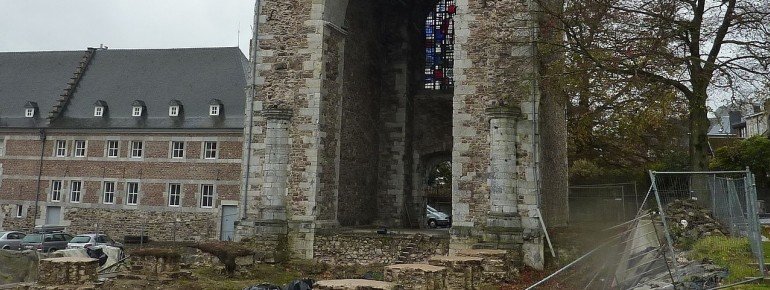Contents
Description
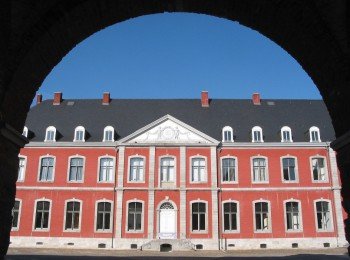
Stavelot Abbey accommodates three museums under one roof:
- The Principality of Stavelot-Malmedy Museum
- The Spa-Francorchamps Race Track Museum
- The Apollinaire Museum
The Principality of Stavelot-Malmedy Museum
Here you can have a closer look into the history of the “Ancien Régime”. The museum is built up following the most modern standards of museum education, entailing image taking and audio recording, samples and art work as well as multimedia elements allowing you to gain an exciting and comprehensive insight into everything presented. Recently, remains dating back to the 11th century were found in the abbey and have now been archaeologically prepared to be exhibited. Subsequently, they have now also been included on the list of objects listing all extraordinary cultural heritages in Wallonia, the southern and French-speaking part of Belgium. Momentarily, the list consists of 159 objects, in total.
A tour through the entire museum might take between one and a half and two hours.
The Spa-Francorchamps Race Track Museum
Visiting this museum, you may certainly come to see the allegedly “most beautiful race track in the world”. You find extraordinary cars and motorbikes as well as additional unpublished footage. The museum definitely makes the hearts of any motor sports fan beat higher! Take the place of your racing idols at the virtual race and the Ardennes Circuit. The visit takes appr. between half an hour and an hour of your time.
The race track itself is located between Stavelot, Malmedy and Spa.
The Apollinaire Museum
The Apollinaire Museum is dedicated to the poet Guillaume Apollinaire who partially resided at Stavelot in his lifetime. In 1899, young Guillaume spent his vacations at Stavelot at the fragile age of 19. This very stay has immensely influenced his work. The museum presents information about his stay in the region around Stavelot Abbey. All visitors have the chance to delve into the world of one of the most significant personalities of the last century. For this museum, too, you will need approximately 30 minutes up to an hour to visit the entire building. The documentation centre holds more than 1,000 works of and by Guillaume Apollinaire.
Visit
Meanwhile, if you don't happen to be visiting one of the museums, you may have a little break in the café and relax enjoying a snack or a coffee.
Upon reservation, you may be led through the museums by participating in a guided tour. Our trained staff will lead you through the museum and provide you with all information there is to know. Guided tours are offered for individual visitors and for groups of maximal 25 people.
Historical Information
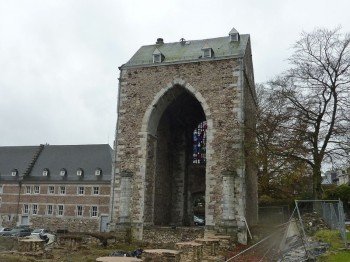
Foundation of Stavelot Abbey
The abbey was founded in the middle of the 7th century as Benedictine monastery by abbot Solignac, Remaclus. He was also buried in the monastery. His shrine can nowadays be found in the Church of Saint Sébastien in Stavelot. In the period between 950 and 1050, the monastery became an important hub of the reform movement of Cluny.
Closing of Stavelot Abbey during the French Revolution
The Abbey of Stavelot was founded around the same time as the neighbouring monastery Malmedy. Both monasteries were tied to each other by personal union and belonged to the Lower Rhine – Westphalian imperial region. In 1795 the region became a part of France after the the secularisation process of abbeys and monasteries had started in 1796. Possessions were sold by degrees and so the monastery ceased to be during the French Revolution towards the end of the 18th century. After the winter congress, the region around Stavelot and therefore the abbey, too, became a part of the Netherlands and eventually of Belgium, upon its founding in 1830.
The Abbey and Bible of Stavelot
The abbey is known to have been constructed during the 11th century. In front of the nave, an impressive tower was originally placed dating back to the year 1534, which the only 49 ft (15 m) high ground floor is left of. The Bible of Stavelot is derived from the very same century and today can be found in the British Library in London.
Interesting facts
- The day pass at Stavelot Abbey is €11 making it one of the 3 cheapest tourist Attractions in Belgium.
How to get there
By public transport
By train you travel until Trois-Ponts train station. Once there, you use bus line 294 to get to Stavelot. You can also hop on bus line 294 at Verviers.
By car
Travelling here by car, it's best to take the E42/ A27 from Verviers until AS Malmedy. Continue via N68 further to Stavelot.
There's a car park behind the monastery complex at Rue des Moulins, where you can leave your car free of charge.

